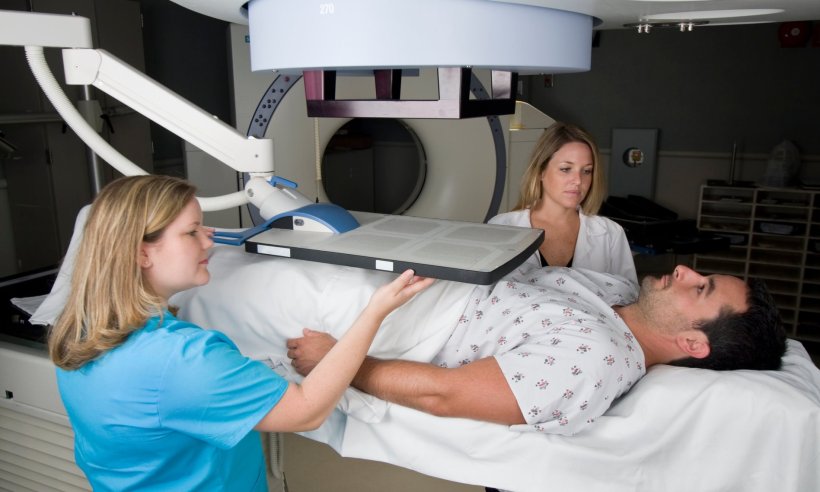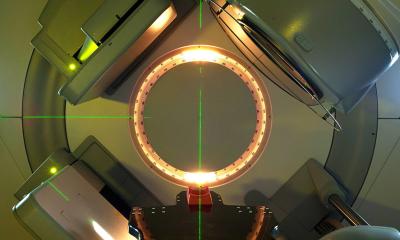
Image source: Adobe Stock/Mark Kostich
News • Radiotherapy trial
Prostate cancer: radical approach greatly reduces treatment visits
A clinical trial led by Queen’s University Belfast has shown that men diagnosed with prostate cancer can benefit from ‘radical radiotherapy’ that delivers treatment in five hospital visits instead of the typical 20.
The ‘SPORT trial’ (A Study Evaluating Stereotactic Prostate Radiotherapy in High-Risk Localised Prostate Cancer) is the first of its kind in the UK and was a collaborative effort involving cancer researchers from Queen’s University Belfast and the Belfast Health and Social Care Trust. The results have been published in the International Journal of Radiation Oncology Biology and Physics.
The 30 men from Northern Ireland who took part in the trial were treated with an advanced treatment called ‘SABR’ (Stereotactic Ablative Body Radiotherapy). This radical radiotherapy is highly accurate in targeting certain cancers, reducing tumours, whilst delivering large doses per treatment, allowing men to have their full course in only five hospital visits. This reduction in the number of treatments was also found to be more efficient and cost-effective for busy radiotherapy departments within the NHS. Prostate cancer is the most commonly diagnosed cancer in men so this treatment could make a real impact on busy radiotherapy centres.
In addition, prior to the radiotherapy treatment, the patients in the study had a SpaceOAR inserted, a minimally invasive hydrogel technology. This gel was placed between the prostate and bowel before treatment and was found to reduce unwanted radiation dose to the bowel by 70%. This allowed clinicians to treat the prostate with a higher dose of radiation without increasing the risk of negative side-effects, particularly bowel problems.

Image source: Queen’s University Belfast
The trial was led by Suneil Jain, Clinical Professor from the Patrick G Johnston Centre for Cancer Research (PGJCCR) at Queen’s University Belfast and Friends of the Cancer Centre’s Consultant Oncologist at the Belfast Health and Social Care Trust. He explains: “We are very excited by these results. The SPORT trial has proven this large reduction in treatments with advanced radiotherapy is feasible in patients with high-risk prostate cancer. Our hope is that in the future men with high-risk prostate cancer will require only five treatments of radiotherapy with SABR, improving their chances of disease control, whilst minimising the risk of life-altering side effects.”
In addition to proving the effectiveness of the SABR treatment, researchers from the PGJCCR also identified biomarkers that may predict which patients involved in the study were more likely to develop bowel toxicity.
Dr Orla Houlihan, Clinical Fellow from the PGJCCR at Queen’s University Belfast who was one of the researchers on the study, said: “Changes in the levels of these biomarkers suggest that we may be able to identify those patients who have an increased risk of side effects from radiotherapy. We hope to be able to use this information to adapt their radiotherapy plans to reduce this risk. This would improve patient outcomes and quality of life after radiotherapy for prostate cancer. Results are very encouraging for the future of personalised radiotherapy.”
Source: Queen’s University Belfast
05.04.2023





